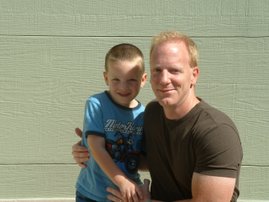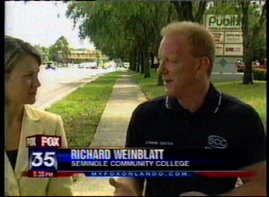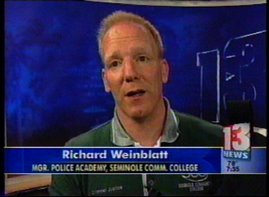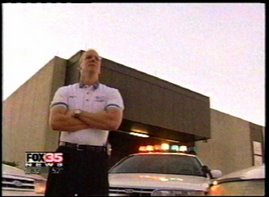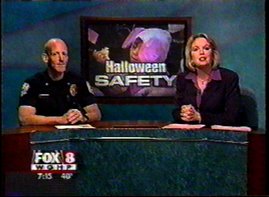
As a college criminal justice educator, police expert media commentator, and former police chief, I have commented extensively police situations and have done so before on everything from Taser to the Caylee Anthony case. In some cases I have defended officers on the scene and explained their perspective. But in others, I have eshewed the circle the wogon mentality. I call it for how I see it based on commonly accepted police practices and an eye on the big picture of policing in America.
The big story today: Professor Gates racial profiling case. I have read the Cambridge Police reports and have several thoughts on the matter.
Bottom line: while the officer was justified in investigating a crime, he stated in his report that he was satisfied that the occupant, Professor Gates, was legally allowed to be there and that no further danger was present. That, from a law enforcement perspective, is THE key phrase. It was at that point he should have left. This became a battle of competing egos.
I have walked away once my legal duty was done even with someone yelling. The courts have long ruled that people can yell at the police. Disorderly conduct is a stretch especially when you (order or ask) the person to step outside so that non-police folks can be exposed to that yelling and be "alarmed" as an element of disorderly conduct. Just the perception alone is bad.
We need to see the big picture in policing. Perception is reality. We as professionals need to be sensitive to other people and their reality. Here as Director of the Institute for Public Safety at Central Ohio Technical College (which includes the Basic Police Academies) and other places I've been before, we drive home the mantra of respect and understanding for other folks' perspectives.
While perhaps the Professor was overly agitated, it was the police presence that was creating the agitation. Remove the police presence, and the agitation is gone. This is not unlike the theory that Los Angeles Police and other police agencies are correctly gravitating to regarding police chases. Bring in a helicopter, stop chasing with ground units, and the fleeing driver will stop driving at the high rate of speed.
We in policing are supposed to be professional problem solvers. The courts have ruled that it is not illegal for officers to be called names. Doesn't make it pleasant, but it is part of the career of peace officer. We are supposed to deescalate situations even if it means walking away.
I even saw this a few years back while doing a ride along with constables of the London Metropolitan Police in the U.K. A marked police car I was riding in broke down. People riding by would give me and the two uniformed bobbies obscene genstures. The officers just laughed. They understood that it was not personal, just directed at the uniform. They also knew it was part of policing in a democratic society.
While I believe in officer discretion, I do not believe that it was executed wisely here. I feel that he should have seen that the big picture of what we do and why we are here was forgotten for the heat of the moment. We in law enforcement are supposed to be above that.
Having investigated numerous reported break ins in my career, having supervised and trained officers who do so, I can comment on accepted police practices at each stage in the call for police service and how the officer handled it based on his own report.
To say the least, this call was not handled well. My educated prediction is that the case against Professor Gates will go away. In the meantime, officers nationwide will have to contend with folks that have yet another seed of discontent with law enforcers. All because the big picture was not heeded here.
Officers, and I agree, are all about officer safety. Officer safety begins with respect and being a peace officer. Walking away when it is not worth it and the legal need to remain to investigate has been satisfied. That did not happen here.
Tuesday, July 21, 2009
Harvard Professor Gates and Racial Profiling: Police Expert's Perspective
Posted by
Dr. Richard Weinblatt
at
11:46 AM
Subscribe to:
Comments (Atom)








